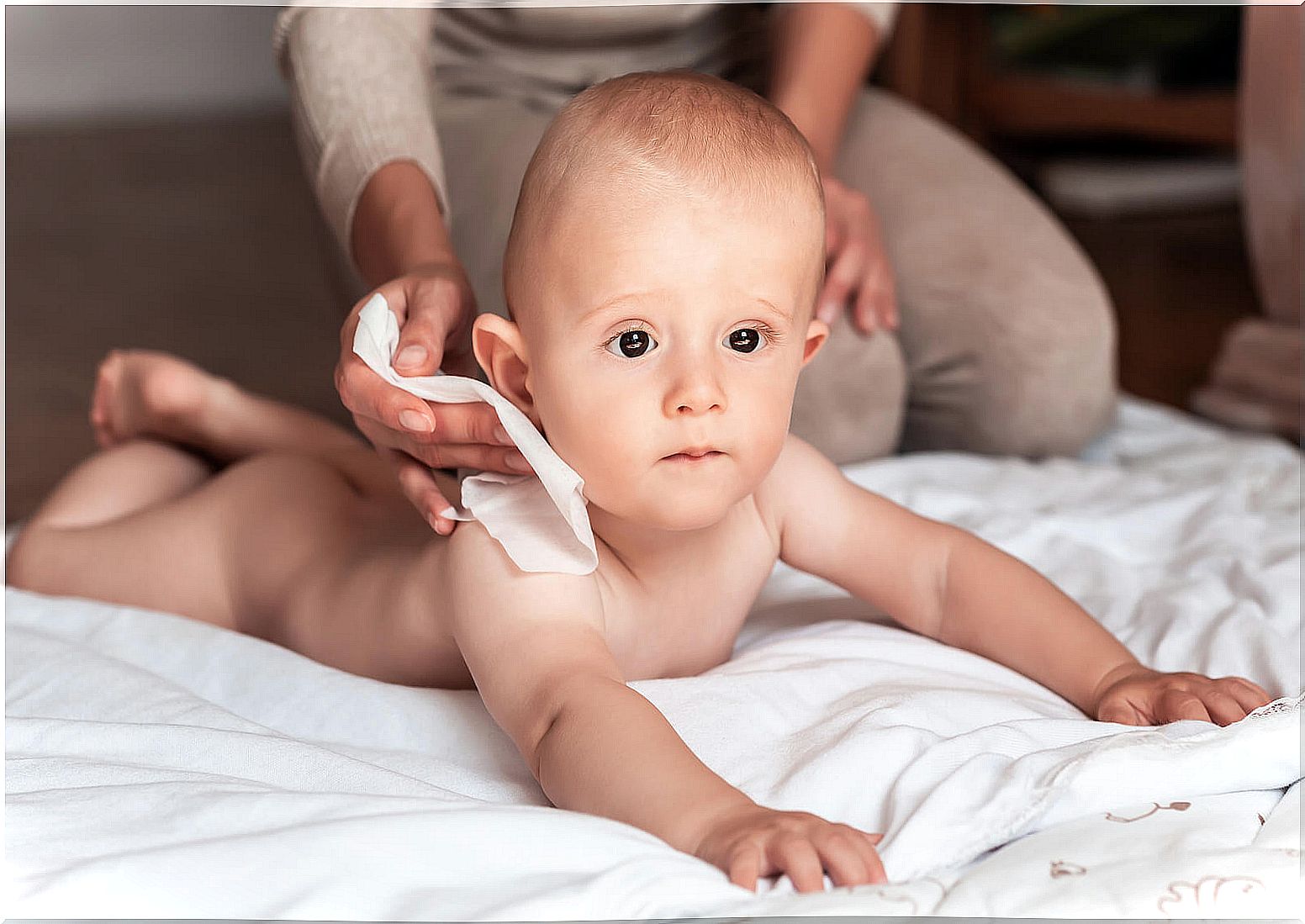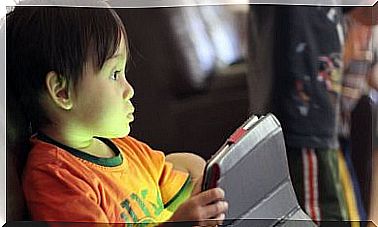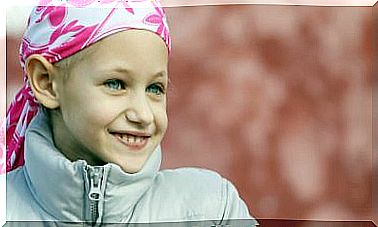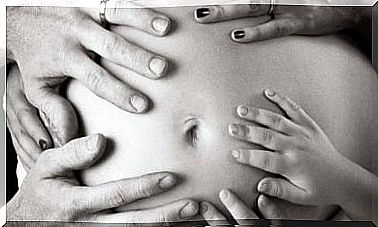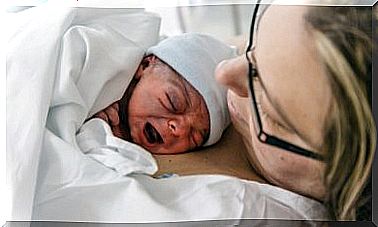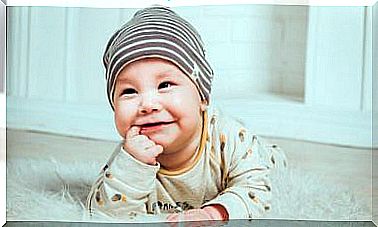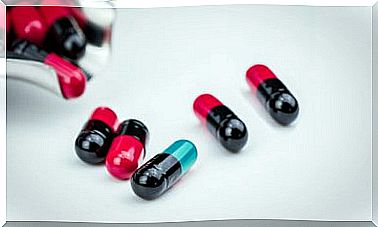Neonatal Acne Treatment
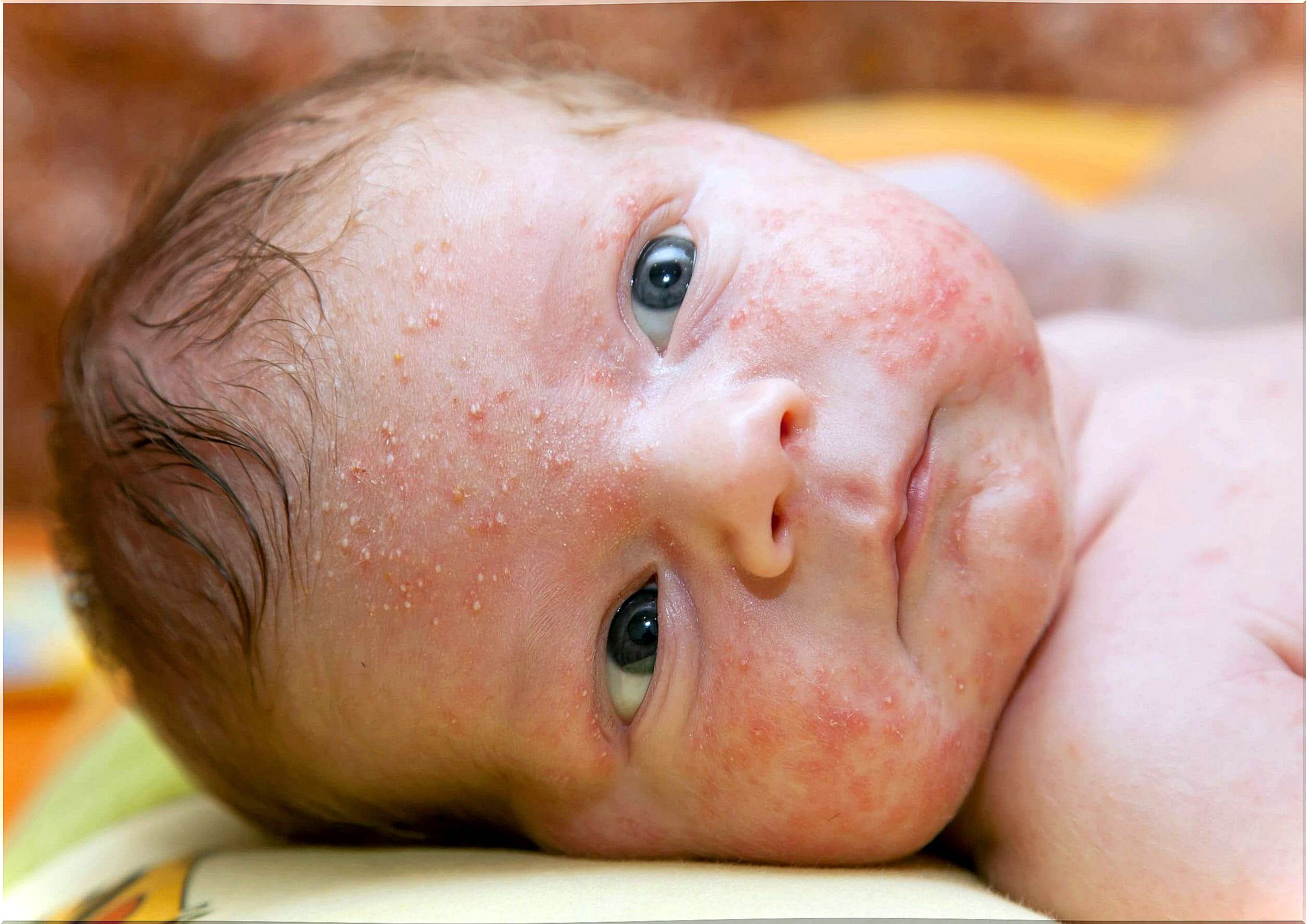
Neonatal acne is a common pathology and affects 20% of babies under 6 weeks. Treatment of neonatal acne rarely requires maximal intervention, that is, it usually resolves spontaneously.
The rashes on the skin of babies are, in the vast majority, benign, self-resolving and transitory manifestations . However, they cause concern in parents, which leads them to a consultation with the specialist.
What is neonatal acne?
The origin of infant acne has not yet been specified. In fact, some theories assume genetic predisposition as one of the great causal agents.
In turn, the increased activity of the sebaceous glands as a result of circulating androgen levels could be another factor. This is why it occurs in the first 3 weeks of life.
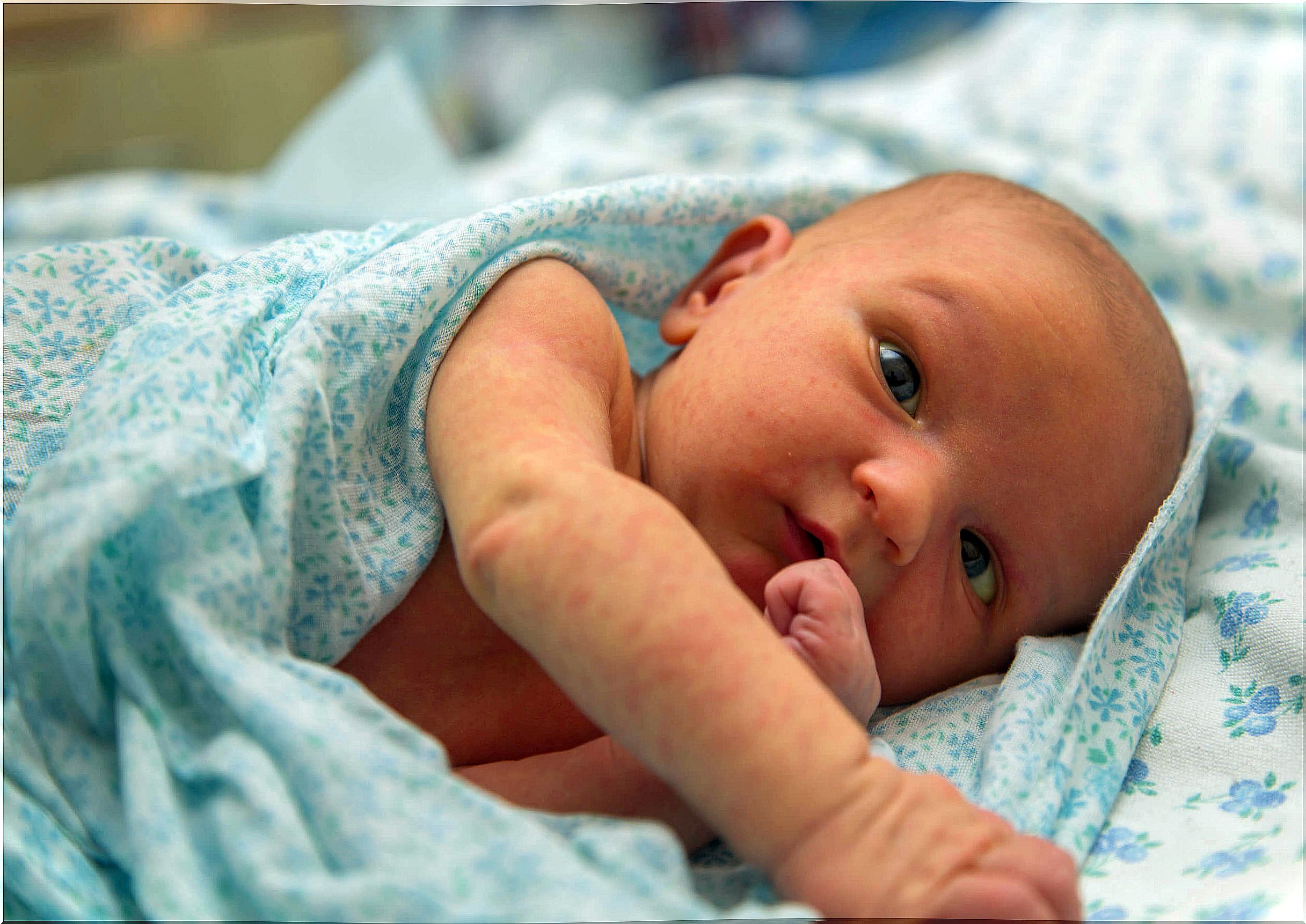
Clinical manifestations include erythematous papulopustules surrounded by a red halo on the chin, cheeks, neck, eyelids, and upper chest.
Neonatal acne treatment
Neonatal acne, also called neonatal cephalic pustulosis, is a benign pathology that does not tend to generate significant complications. Hygienic measures and care are recommended, since medical treatment is not usually the first option for its management.
Neonatal acne lesions evolve spontaneously shortly after their appearance. If the clinic persists or becomes complicated, the pediatrician should be consulted to indicate the conduct to be followed according to the complication that has been generated.
Keep your face clean
Keeping babies’ skin in good hygienic condition is not just an indication for those with neonatal acne. In fact, the skin of infants differs in several ways from that of adults, which gives it an even greater delicacy.
Cleaning is recommended daily with warm water and neutral soap, which is considered hypoallergenic and suitable for babies. At the same time, not only should the face be kept clean, but also the folds of the neck, neck and scalp.
Avoid aggressive products
Hygiene products should be selected with considerable caution and care on the part of parents. There are products that are not suitable for use in newborns due to their irritating components, such as alcohol, fragrances or different allergens.
In turn, the same happens with body perfumes or those used to perfume children’s clothing. Choosing products with little or no content of all these irritating compounds is ideal.
Do not use oily or greasy lotions
The use of products that are very oily in their composition can promote the development of neonatal acne. However, in the event that it is decided to use this product, then cleaning must be implemented to remove it.
In children with infantile seborrheic dermatitis, the use of almond oil is usually recommended to help shed the scales on the scalp and skin. However, after this procedure, the excess product must be removed and the skin cleaned properly.
Do not rub or squeeze neonatal acne lesions
In adults there is a great tendency to squeeze and touch the pimples that develop on the skin. However, this is a practice that is not endorsed by medical personnel, much less in infants and infants.
Rubbing the area of lesions, kissing babies or brushing their faces can cause irritation or, worse, possible complications. These complications can be infections caused by microorganisms from contaminated hands or the oral cavity.
Do not self-medicate as a neonatal acne treatment
Today, this is a common practice in every home. Faced with any symptoms, they resort to researching information on the internet and self-medicating.
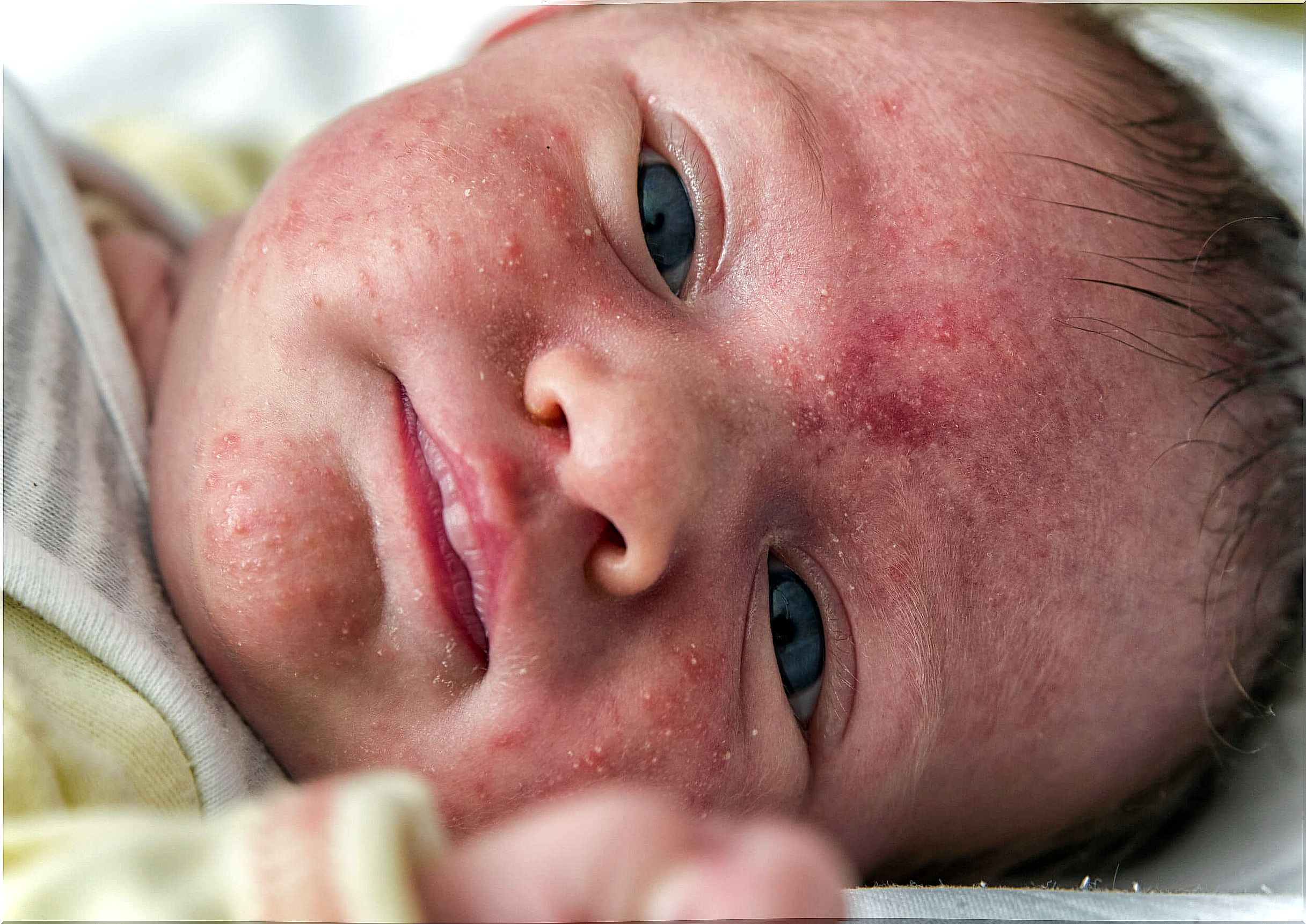
In cases of neonatal acne, it goes without saying that it is inadvisable. Babies’ skin is delicate and sensitive and the administration of any type of cream or ointment can be counterproductive.
There are creams on the market with various components that make them useful for a wide spectrum of skin pathologies, therefore, people use them indiscriminately and then turn to the doctor with the adverse effects that they caused.
Neonatal acne and parents
Although this condition produces anguish and discomfort in the parents of the baby, even due to injuries to the infant’s face, they should remain calm, since they are benign manifestations that resolve quickly and on their own.
Thus, consultation with the pediatrician is important because it will accurately diagnose the clinical picture and bring peace of mind to the family.
